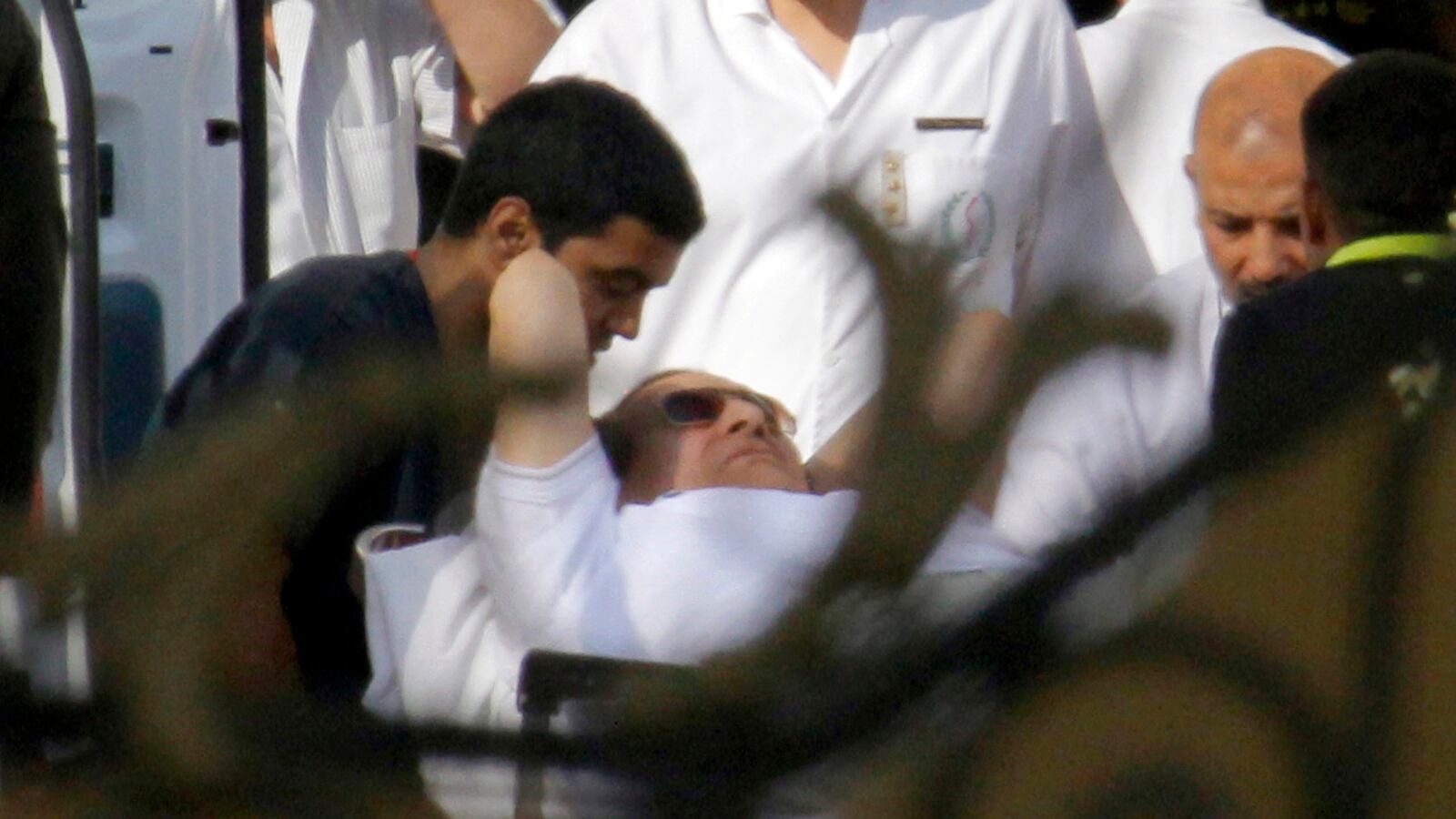In case you think President Hosni Mubarak is back, think again. The fact is, few Egyptians seem to be thinking about him at all. On Thursday the former dictator was released from prison and flown by helicopter to a military hospital where he reportedly will live under “house arrest,” in accordance with Egyptian law. The new de facto ruler of the country, Gen. Abdel Fattah al-Sisi, neither needs nor wants the octogenarian autocrat, who used to be his boss, out and about. Several cases against Mubarak for corruption and abuse of power are still pending and are unlikely to be dropped.

The issue for the people of Egypt is that the security apparatus they loathed under Mubarak is still in place. But the irony that is hard for many foreigners—and foreign governments—to understand is that many Egyptians had come to miss it.
Ramadan Fares, 63, has been selling newspapers and magazines on Tahrir Square for five decades. This morning, as cars cruised through the nearby intersections unobstructed by protests or sit-ins, Fares was sorting through the day’s newspapers, some of which had the famous photo of a sunglass-wearing Mubarak behind bars on the cover. “Let me tell you something,” said Fares. “Mubarak’s release won’t have any effect on Egyptian citizens. As an old guy, I am telling you: it is always about tomorrow; it is never about yesterday.”
In the two and a half years since Mubarak’s overthrow by a popular uprising and a military putsch, Egyptians have come to understand all too clearly that the old police state never entirely disappeared. The cops pulled back from the streets for a while, letting criminality run rampant, perhaps so they’d be missed. But they returned with a vengeance to suppress protests under the government of President Mohamed Morsi, which was elected last summer and finally was deposed, in its turn, by a new popular uprising and a new military putsch this summer.
Now, under al-Sisi, the old security apparatuses are reappearing publicly, blatantly, and unapologetically. Once again we hear that Egypt is fighting “terrorism,” a refrain that was common under Mubarak. The country is ruled under emergency law; a curfew is in effect; hundreds of people have been killed, thousands wounded, and many arrested as the new strongman moves to crush ex-president Morsi’s organization, the Muslim Brotherhood, once and for all. It’s a bloody business. Factions sympathetic to the Brotherhood have attacked churches all over the country, blaming the Christian minority for supporting Morsi’s overthrow, and Christians say their pleas for help from the government have gone largely unanswered. Elsewhere, Brotherhood sympathizers have massacred police in the Sinai and in rural villages. Perhaps in retaliation, dozens of detainees in a police van were burned alive.

“It seems that facing a two-sided battle against tyranny and terrorism is the fate of democratic and political forces in Egypt,” says Gameela Ismail of the liberal Al-Dostour Party.
Fares, from his vantage point near the traffic in Tahrir, thinks the police have improved their behavior and are less abusive. “The way that police are treating people, it has changed, because it must change,” says Fares. “I spent 50 years here in the square, doing nothing but watching people. The square is going back to being the square, for passing through, and for working. It will go back to being the meeting point and passing point for people around the country. I am optimistic. Life, my son, keeps going. Life keeps going. Nobody can stop the calendar from running. And nobody can take us back.”
At least, not Hosni Mubarak.







